In this episode, Jarra Hicks of the Australian nonprofit Community Power Agency talks about addressing rural resistance to clean energy infrastructure through effective community engagement.
Text transcript:
David Roberts
To hit its climate targets, the US must build an enormous amount of new clean energy infrastructure. Much of that infrastructure is going to be built in rural communities, and the resistance of those communities to that infrastructure is one of the greatest threats to the clean energy transition.
I've done a couple of pods on this subject and will probably do more. Today, we're going to get something of an international perspective.
When I was in Australia, I interacted with a broad network of scholars and activists who are thinking seriously about the social mechanics of community buy-in. One of those scholars and activists is Jarra Hicks, who got her PhD at the University of New South Wales with a dissertation on community-owned wind farms in rural (or as they call them in Australia, “regional”) communities. She now runs the Community Power Agency, a nonprofit organization that is working to ensure a “faster and fairer transition to clean energy.”
Among other things, Hicks has co-authored a benefit-sharing guide and runs an online benefit-sharing course, both meant to help renewable energy developers better navigate this tricky territory.
I've been meaning catch up with Hicks ever since I returned from Australia. Last week I finally got the chance — we talked about the problem of rural resistance, the balance between community engagement and speed, and the many varieties of benefit sharing. I think it will be clear to everyone how this knowledge transfers into the US context. I enjoyed it immensely and hope you do too.
All right then. Jarra Hicks, welcome to Volts. Thank you so much for coming.
Jarra Hicks
Yeah, thanks for having me.
David Roberts
This is a topic of great, great interest in the U.S. right now, but I thought it would be interesting to get a perspective from another country as well, especially since you seem to have devoted your life to learning about this. So I think there are going to be some lessons that are transferable, but let's just start maybe with how you came to this subject of your PhD and of your professional work.
Jarra Hicks
Yeah, sure. So I was really lucky. I got the chance to visit a lot of communities that were doing renewable energy projects, and these were communities that were really embracing renewables. They loved renewables and they were getting great outcomes for their communities and for the planet. And I wanted to see more of that. I wanted to see more communities who were really passionate about renewables and able to get a lot of great benefits from being involved in the energy transition. And I wanted to see more communities who felt positive about this change. And if we go back, I first got involved in this in the early two thousands.
And at that time, there were a lot of communities who were pushing for more renewable energy uptake. And in Australia at that time, there really wasn't a ton of renewable energy, and probably similar in the states, communities were really wanting to get behind renewable energy as a means of taking action on climate change. And at that time, there was an absence of national policy supporting renewables. So it was about a grassroots movement to get renewables up and running. So we saw programs like communities coming together to organize a bulk purchase and install of solar panels at a community scale.
So helping reduce the barriers for people, helping them understand the technology, helping them install it in their homes. But we also saw communities coming together to establish commercial-scale projects like little two-turbine wind farms. And this was really motivated by communities wanting to take positive action on climate change.
David Roberts
Did that switch at some point to resistance? Because that's the opposite of the problem we have now.
Right, well, I guess, yeah. So what we're seeing now is there is emerging resistance to large scale renewable energy projects. And so it is, it's a really different landscape. But what I've learned through my years of being involved is that it's really possible for communities to not only accept renewable energy projects but to really love them and to welcome them in their communities. And it's about the way we go about these projects, and it's about the way we make opportunities for people to really be involved and to genuinely participate in that process.
What was the PhD work, what was the specific focus of your PhD?
Jarra Hicks
So, my PhD looked at small community-owned wind farms. So using commercial-scale turbines, 900-megawatt turbines, 1 MW turbines, but just one or two or three of them at a time. So these are small wind farms that are owned by the community. And those projects, they've emerged from a community desire to have their own energy or to have clean energy to take action on climate change. And these communities went through different processes to set up these enterprises so that they could have community-owned wind farms. And my PhD was really looking at what are the social outcomes that can occur in a community when they go through this process together.
And ultimately, what I was looking at is how can we do renewable energy development in a way that brings people along and that helps people to feel positive and confident and comfortable about renewable energy, and that creates a business model that delivers benefit back into communities as well. And through my career now, I've been able to learn about what is it that helps to create a positive relationship between communities and large scale renewable energy projects and to translate some of those learnings into the commercial large scale renewable energy practice of development.
David Roberts
Social license, as they call it. Talk a little bit about how you think about social license, just sort of in the abstract. What is social license and why is it particularly so important for renewables?
Jarra Hicks
Yeah, so it's a term that's used to describe the ongoing relationship between a project, the project proponent, and the local community or the society hosting that project. It's a dynamic relationship. It's not a once-off license that you might get for other aspects of project approval. It's not a once-off stamp, and there it is. It's dynamic and ongoing. It's constant. It's through the development process, it's through the operation phase of the project. It's lifelong. And it's about creating and maintaining a level of acceptance and approval for a project in the community that is hosting that project.
And at its strongest, it's about actually embedding that project into a place so well and so much that people can identify positively with it. Like it can even become a symbol of that place, or it can become a characteristic that people feel proud of. But when it's missing, or if there is no social license to operate, that's when we see broad-scale opposition and protests that can hamstring a project or stall it for years or even sometimes kill a project in the water.
David Roberts
Yeah, I want to spend a little bit of time on that, on the negative side on bad process. Starting with just: Is it as big a problem in Australia as it is in the US right now? Because in the mean, I think I would rank it on top of the forces pushing back against the spread of renewables right now. I would put community opposition rank it number one. There are projects dying right and left of this stuff. Is it that big a problem in Australia? Like, is the Australian renewables community as gripped by this problem as they are over here?
Jarra Hicks
It's definitely a big concern, and I would say it's becoming a more difficult thing by the day in Australia. Part of what's going on is that communities are getting sick of the relationship with a company that is extractive. They're getting sick of that scenario where a big company comes in and takes something in a way that feels extractive, it doesn't feel fair, and it doesn't provide a benefit, a genuine, lasting benefit in that community. And it doesn't engage with people in a way that helps them to feel like they're being treated with respect. I have a three-year-old kid and if I just try telling him what's going on and being like, "Right, we're leaving the house now. Come on." He doesn't really like it. People don't really like just being told what to do. People respond much more positively if you're like, "Hey, it's going to be important for us to go and do this thing soon. And we could ride the bike there or we could drive the car there. And while we're there, we could do something fun for you as well." taking the example of my three-year-old kid. The renewable energy equivalent is about working with communities through a process that feels fair and good. So it's about doing your engagement well. It's about doing your engagement early enough so that communities genuinely have a role to play in designing a project that is going to be appropriate and well received in that place.
It's about doing engagement in a way that allows people genuinely to influence some outcomes of the project. And it's about doing your engagement in a way that is appropriate for that community too. Like, are they online literate or do they rely really on the newspaper and the radio and face-to-face engagement? it's about all those things. But it's also about delivering positive and tangible benefits. So there's really two elements. It's about it being done well in terms of the process and done well in terms of local people's experience of the outcomes from that project. In the academic research on this that's been done across the US, Europe, and Australia, the language is around procedural fairness and distributional justice.
David Roberts
Do you in Australia, as we do in the US, have an active and well-funded political force pushing against you on this? In other words, trying to sow confusion where you're trying to remove it, trying to raise fears where you're trying to calm them, that kind of thing. Is there something organized like that nationwide, or is this spontaneous community pushback?
Jarra Hicks
There is both. I would say that there's definitely organized, particularly anti-wind sentiment that has deep links politically within conservative politics and that historically has been proven to have links with the fossil fuel industry as well. And that's been the case for over a decade with regards to the anti-wind movement in Australia. So that is a really difficult political context and they are often really good at doing fear-based campaigning and also capturing the media, and it's a real concern. Part of my way of thinking and strategy for how to address that is if we can be doing our practice well as renewable energy developers, if we can be engaging people well and with respect, we've got good process and we've got good strategies for delivering benefit locally, delivering local jobs and local procurement and other benefits, and we're in those communities having good relationships and good conversations, then that's the only thing really that we can do to inoculate against that fear-based and organized campaigning.
David Roberts
Another thing that comes up when I hear this, and I've talked to some renewable energy developers about this and they feel caught in a dilemma, I guess you would say, which is there's this incredible need for speed and this incredible demand for what they want to do from the sort of nation at large, but this incredible pushback at the local level. So when they go fast they run into problems, right? They're told if they go too fast they run into problems. But the only alternative is going very slow. And going slow A, costs more money and B, doesn't serve that interest of speed that's built into the sort of climate targets that the US has.
So how do you wrestle with this dilemma between process and speed? When I hear more process, more engagement with the community, especially on a bespoke — as you say, every community is different, and if you really want to do this well, you're going to do research beforehand, you're going to do polls or surveys, you're going to have someone who's there on a full-time basis. I mean I can imagine how to do it very well. All of that to me sounds very slow. How do you think about the relationship of quality, I guess, and speed when it comes to community engagement?
Jarra Hicks
I have a bunch of thoughts on that. I think at a project level, if you have dedicated engagement staff working alongside your project development team and they are able to be on the ground doing the good work in the community, like there every step of the way with your project development team from when that project is first conceived and you're first doing feasibility studies, I don't think this needs to take any more time. In fact, the experience that I have seen with projects in Australia is that it can actually speed up the project development and approval process. So doing good engagement and good benefit sharing.
You know, I've spoken to projects whose experience is that it has sped up their approval process and that that's had a really substantial dollar value for them because it's made it easier and faster. And this one particular project I'm thinking of, there had been no wind projects approved in that state for two years because wind energy projects had become quite controversial and political and they got their project approved really without a hitch because they had done great engagement, good benefit sharing, and also because it was a well-placed project, it was a strategically placed project. So I think that good practice does not need to slow you down. I guess the other points that I would make, I think that a lot is to do with the practice of developers on the ground in communities.
But the scale and the pace at which we need to do this transition as whole countries and as a whole planet requires that we put some emphasis on creating the right social context for this transition so that our society and our communities really understand why it's needed, they feel comfortable with the technologies, but even more than that, they are enabled and supported to participate themselves. So what I've seen with community energy and what I really believe is that if we have policies that support people to get involved with renewables in their homes, in their businesses, in their communities, that that's going to create a social context of support that will assist us with getting large scale projects happening faster as well.
David Roberts
I meant to mention as you went past that, that these community engagement people at the renewable energy developers who I talk to also always say that they're underfunded relative to their opposition, that they go in completely unprepared for the scale and intensity of opposition, and that their bosses don't yet understand how important or significant their job is or how the kind of fight they're fighting. Do you have a sense that renewable energy developers are starting to get the significance of this and resource it appropriately?
Jarra Hicks
I do feel like that's a change that's very much underway in Australia, also globally, but there's a long way to go. I think there's a recognition now that social license and the social aspects of this energy change are really important. I think people are starting to use the right words, but I think people are still learning what that means in practice, particularly when it does need to be quite nuanced and locally appropriate in different contexts. But the things that I've seen helping to shift that practice and that sort of emphasis and that resourcing towards more community engagement in Australia, the things that are helping, I think, are industry bodies who are helping people do peer-to-peer learning, and policies that reward better practice.
So, for example, in Australia, we have a range of merit-based criteria that companies need to report against in order to be able to access renewable energy incentives or to be able to have grid access to new transmission lines. So that puts like weighting criteria around social outcomes and around community engagement practice, benefit sharing, local procurement, all of those things. Increasingly as well, in the private power purchase agreement market, we're seeing criteria around those social aspects included as well, like say a university who wants to sign a direct power purchase agreement. They want to know that the community has been happy with that project and it's delivering some good social outcomes as well as has good environmental credentials as well.
That's also like a market thing that's helping change behavior.
David Roberts
A little demand pull there.
Jarra Hicks
Yeah, so I think those things are helping. One gap that my organization has helped to address as well is like writing a bunch of guides and guidelines, working with policymakers to write those guidelines, doing research to inform those guidelines. But also we have set up a professional development course that is targeted specifically to renewable energy developers and training them up in community engagement and benefit sharing practice.
David Roberts
Yeah, I was going to say, what do you do if you're a developer? I mean, if you got into renewable energy to do renewable energy, this is not necessarily something you understand or have any strength in or — besides the guides are your guides the only guides you're aware of in terms of just like off the shelf help? Because I know a lot of developers are looking for help now, but it's hard to standardize, as you say, it's hard to standardize this stuff.
Jarra Hicks
Yeah, well, I think the industry bodies play a role there. So in Australia, it's the Clean Energy Council. They have written guides, we've written guides with them. They've also funded research that's helped us to understand better what type of practice is creating better social outcomes. And that's a piece of research that we did a few years ago. I think it is difficult because the energy industry is dominated by engineers and technical people for sure, but we need to increase the awareness that people with a community development training, community engagement training, even social work, those types of skill sets can be brought in and skilled up enough into the renewable development process that they can help on those social aspects of developing a project.
David Roberts
So talk just a little bit about what a good process looks like because it seems like it would be easy, when you're talking about community benefits, it seems how it would be easy for this to look like you're just coming into a community and saying, "if you let us build this, we'll buy you a bridge." Just sort of like very transactional. So what does good community engagement look like? And what are the sorts of things that you can offer a community that don't just look like you're trying to pay them off?
Jarra Hicks
Yeah. So the key there is that it needs to be relational. So good engagement is all about forming good relationships locally. That starts with your host landowners, and it broadens out to the neighbors and then the near community and then the broader community around a project site. It's about spending as much time as possible face to face, and even if that needs to be online, but ideally in person, face to face, having direct conversations, having some of those conversations one on one, having some of them in group environments, and building that up over time, sustaining your engagement and offering a range of different ways that people can engage with the project.
So, don't just do one focus group. Think about doing a few focus groups in a few different areas. Think about having an online survey. Think about having a stall in the street where people can have casual conversations with you and fill out a physical survey. Think about pairing your online comms with a letter mail out. So one of the keys, I think, is sustaining the comms and engagement over time and through a diversity of methods, but starting that conversation with the community early enough so that the input can inform the project as it develops. Like, I understand a lot of stuff is commercial decisions, but there are going to be things that actually will be useful if you incorporate local knowledge.
And those are things like really obvious places in the landscape that are special to people or that have First Nations heritage and significance. If you can access local knowledge early on to know where those are, your project is going to be better off. You're going to avoid the costs of maybe making a mistake in terms of sighting. There's going to be micro sighting decisions that you can include local people in. Like you might reach out to local biodiversity or land care groups to help you understand the nuances of local riparian zones or connectivity among different areas of different vegetation types locally.
These are pretty niche local knowledge — things that can really help if you reach out to local groups. And I would say every single point of connection you can make with a local person and a local organization builds up a richer, stronger network of relationships between the project and the community. And that, that gives you more resilience, I think, against the challenges when they emerge. People know who to come to if they're hearing whispers about something that doesn't sound quite right. All of those things help over time. And in terms of benefit sharing, I think the key really is that it's paired with good engagement and that that conversation starts early.
So when you're first speaking to the neighbors and you're first speaking to local groups, you're saying, "Hey, we don't know exactly what it's going to look like yet, but we are going to offer a per megawatt amount to a community fund. And the amount we can offer will vary based on the commercial aspects and the generation profile of this project. But where that money goes and how it contributes to the community, we want that to be a decision we make with the community. And so we're going to be setting up a local reference group, we're going to be talking to people, and we're going to be working with you to design that benefit sharing package and then to govern it and make the decisions about where that money goes over time."
So, it's really about creating opportunities for people to be involved, to participate. Fundamentally, I think that's it.
David Roberts
What do communities tend to ask for when they are allowed to be involved? Are there patterns? Are there predictable things that work?
Jarra Hicks
A lot of projects end up setting up some kind of grant fund, like an annual grant fund, because it is really flexible and it can be really responsive to whatever it is that the community is wanting to do, or whatever the need is at the time. But I've also seen really great programs like allocating a portion of the benefit fund into a revolving loan program that can support low-income households to install solar panels or solar hot water or heat pumps, and that money is brought back and then recycled over time and can go on to help the next household. I've also seen programs where a portion is allocated to an annual grant fund and a portion is allocated to a sort of longer-term legacy fund where it might go into an interest-earning account for a few years, and then after five or so years, it's got a bigger chunk of money to do a bigger strategic project in the community, and to go out and seek matching funding from state government or whatever it is, so that the community can achieve something that is a bigger, more strategic need, that has a longer-lasting impact. So I think really it's about being able to work with a community to identify what are the things that are going to have a significant impact on the challenges that are being faced by that community, that are unique to that place, that will really help to create a step change.
You know, for a lot of small regional communities renewable energy is a really unique opportunity that comes once in multiple generations. And if we can use this opportunity well, we can deliver some really awesome outcomes. And some of the great examples I've seen are renewable energy developers partnering with domestic violence organizations to be able to repurpose worker accommodation into temporary accommodation for people experiencing domestic violence. So after the project has been built, that accommodation is then able to be gifted or co-owned by a local service and a local government to be able to have an ongoing positive benefit in a community.
David Roberts
And these are all just things that developers are coming up with. Communities —
Jarra Hicks
No, well, in conversation with the community. It takes being on the ground, having conversations, going through a process that is basically like a community development process or a community planning process, thinking about having local conversations with people, thinking about what are the real needs here and what could we do and who could we work with to make a great impact.
David Roberts
This also brings me to something that I was glad to see that you are working on and writing about, which is it seems there are going to be places where these projects are concentrated and there's going to be a bunch of projects in particular regions. And it just seems like developers going one by one by one by one by one to each of these little communities and working out bespoke deals — it seems like you could do something more regional, more regional in impact, something a little bit more with a little bit more structure and something that could pool the benefits of multiple projects and maybe do bigger things for public benefit, things that you couldn't do with the revenue from a single project. And you've been writing a little bit about that.
So just describe what regional benefit sharing, what that means.
Jarra Hicks
Sure. So it's exactly that. It's in areas where there's going to be a high density of projects: How can we coordinate benefits, but how can we also coordinate other things that are going to have a significant impact but also a significant possible positive benefit for communities like coordinating housing, coordinating jobs and training, coordinating employment opportunities and local procurement opportunities? But in terms of the benefits, it's about saying, "yeah, how can we work together?" first of all, to administer our programs so that we don't overwhelm the community and confuse everyone and create engagement fatigue.
David Roberts
Yeah, I mean, you can imagine communities like, "What did you get? Well, what did you get?" And just all the rumors going back and forth. There's just a lot of process happening over and over and over again.
Jarra Hicks
Yeah, and totally. And if there's ten different grant funds all in the same area, how do you remember which one are we applying for now? And all the time that goes into those applications? So there's a way of streamlining the administration of the benefit sharing and streamlining the governance as well. So if you've got a local committee involved in helping to make the decisions about what gets funded, being able to have one committee that might oversee a number of different grant programs that are all in the same geographic region, that makes a ton of sense, being able to have some common resourcing of the administration.
So rather than having one staff person in every company, you pool that and you do it together. That makes sense. It makes it easier for the community, probably. It also makes it less cost for the company. But then there's also a whole other level is like, how do we pool some of that funding at a regional scale to do something strategic, bigger, with more lasting impact on the real issues? So with benefit sharing, there needs to be layers, right? Benefit sharing is partly about creating a positive relationship and an experience that is of fairness from a project.
And so that does need to relate to the community that is most immediately affected by that project. So you need to make sure that your benefits are experienced by the neighbors and by the immediate community who are hosting the project. If it was all going to the region, that probably wouldn't feel fair for the people who are literally the ones who see it every day. So, a portion of the benefit sharing from any project needs to stay in that most immediate community. But I think a portion of the benefit sharing budget, there's an opportunity to pool it with other projects within that region so that you can have that bigger fund and you can do those more strategic projects.
David Roberts
But who's doing that? Is that developers coordinating with one another? Because that seems — I don't know how well that's going to work. Is this like a nonprofit entity? Is this a government, a regional governmental thing? How would you structure this so that it feels fair to all the individual communities involved and to all the individual developers involved?
Jarra Hicks
I think that's a great question, and to my knowledge, we're still very much figuring that out the world over. I'm not aware of examples of where this has actually been done yet.
David Roberts
Oh, really?
Jarra Hicks
I am aware of foundations, like existing foundations that are providing some administrative and governance services to developers around their benefit sharing programs. But I'm not aware of anybody who is regionally coordinating a bunch of projects to do something more strategic. And that's the work that we are thinking through right now. And we're basically out there seeking partnerships with other people who want to figure that out with us. But I imagine we're going to see a bunch of different models. And I think this is partly the role of the state. When we talk about needing to coordinate renewable energy development so that we can keep the lights on and meet our climate targets and our net zero emissions targets, there is a role for the state to coordinate that process, and this is part of that coordination that needs to happen.
It is not just a technical change. It's also a social process. We need the state. In Australia, this is definitely the case. I can understand why it's happened, but we've been mostly focused on the technical and the market aspects of setting up this renewable energy transition, rather than resourcing and trying to coordinate or putting as much emphasis onto the social aspects. Within that, I include the impacts on housing, the need for additional training and jobs, and workforce development. There are just so many layers to it.
David Roberts
This is what I always come back to as I think about these things: I can imagine things developers can do individually and in individual communities, and even some regional sharing if they can figure out models to do it. But I just keep coming back to the role of the state. It would just be so much easier, I mean, if there were a sort of prescribed minimum of here's how much you have to share with the community you're located in, or something like that. Just some baselines, just so people aren't tempted to cheat, because every developer now has to be thinking like, how can I get around this?
You need everyone's cooperation to sort of lift the boat. And it would just be easier if there were some force of law behind it, don't you think?
Jarra Hicks
Yeah. So there are definitely some really strong guidelines that have emerged in Australia now and some really strong norms that are emerging, and some of that is through state governments issuing guidelines, and some of it is through the merit-based criteria for being able to access transmission lines or access renewable energy incentives. Part of it also is just like industry norms that are emerging and communities also knowing about those and holding developers to account on them. The norms that are emerging in Australia are like a per megawatt contribution that is standard for a wind farm, and per megawatt contribution that's standard for a solar farm.
It's emerging now like it was still figuring it out, but emerging in terms of transmission and batteries as well. I think it's great that there's a norm around that dollar figure. It's also great that it isn't regulated, that it has to be spent in certain ways, because I'm a strong believer in the need for that to be a conversation that is led by the local community and needs to be adaptable to the local context.
David Roberts
Has anybody figured out what I have always thought just instinctively would be the best tool for social license: Which is, once you've been doing this a while and you have some happy communities who have your renewable energy in them and are benefiting from it and are happy that they did it. Why don't you get them to talk to the next community? Do you know what I mean? Like all of this, so much of this, is outsiders coming in. But if I'm in a regional community and someone else from a nearby regional community is talking to me, it seems like you just cut through so many layers of skepticism and doubt with that.
Is that a big piece of the puzzle?
Jarra Hicks
I think it totally is. I think people are always more receptive to a message when they hear it from someone that they trust and someone they can relate to. That has been a tactic that's been used in Australia, like taking people on bus trips to go and visit an existing wind or solar farm and talk to the farmer who owns that land, talk to them about their experience of that project. There's also nothing better than actually experiencing something for yourself. If you've heard a bunch of really quite crazy claims about what a wind turbine can do, if you're able just to go and experience it yourself, you can probably make up your own mind about whether or not those things are true or not.
But I also think this points to the really important role for advocacy organizations and not-for-profit organizations. Our organization is a not-for-profit that works in this space. And there are a number of other great not-for-profits that work across Australia. It's just important to remember that we need to resource those types of organizations who do help to fill the gaps and who do help to do that kind of positive advocacy. I think there's an onus on philanthropy and governments and developers all to support those kinds of organizations and their role within this ecosystem that is going to help us achieve the transition.
David Roberts
One of the things that emerges from reading your discussion papers especially, is if you want to do this right, such that you get both a positive community experience and you get scale and speed: You need a bunch of different groups of people working together who haven't always necessarily including like local governments, nonprofits, developers, maybe whatever. These possible regional organizations are just a lot of different jurisdictions and levels of things to work together. Do you feel like from the 30,000-foot perspective, things are moving in the right direction in Australia? Are people coming together around a model that is actually going to scale and go quickly?
Do you feel optimistic about that?
Jarra Hicks
I feel quite mixed about it. I think there's some really great stuff happening and I think there's some good examples of that starting to happen more and more, but there's also some really concerning trends. And part of me feels like it's probably going to get a little bit more messy before we really figure it out. I think that's often the way that change happens, and maybe to some extent that's okay. But I do think I am seeing more collaborations and more partnerships and more conversation between all those different parties trying to figure it out. For me, what I think would really help to unlock the pace and the fairness and the speed of our transition to clean energy is if we really unlock the ability for everybody to play their role in it.
In Australia, we've had households keen to get behind solar for a really long time. We've now got 3.3 million solar roofs in our country that account for gigawatts of generation.
David Roberts
Yeah, and that's just an incredible amount of personal experience with solar power too, just at a base level.
Jarra Hicks
Yeah, and we've got a bunch of community energy projects as well, and we've got even more that want to get up and running, but there haven't been consistent efforts to enable and support that scale of action. I think one of the big missing pieces for me in this is really thinking about how we can enable small and medium scale projects to tap into the distribution network. We know we need massive transmission upgrades, but they are pretty hard and they take a long time and they're expensive. How can we optimize the distribution network, and how can we support communities to do mid-scale projects in that distribution network as part of our big picture thinking towards this?
Because that's going to get more people involved, more people active and understanding more people behind the transition. I heard a story just yesterday of a guy who's a dairy farmer in an area where it's called a renewable energy zone, which is the state government's way of coordinating a high density of large scale projects and planning new transmission lines into a region so that it can accommodate lots of large scale projects. So while the government and industry are planning big transmission lines and big projects and asking that local community to host those projects, this local dairy farmer is still on a really weak part of the distribution network. So much so that he cannot rely on the grid to supply his electricity, to be able to milk his cows.
So, he has two diesel generators to be able to meet that need. I think these are the types of discrepancies we need to address because they lead to major community frustration. Instead, we need to be finding ways to enable people to participate. We should not be in a situation where somebody is being asked to host large-scale generation without also themselves being enabled to get involved with the renewable energy transformation.
David Roberts
Yes, well said. Thank you so much for coming on and sharing your experience. And thank you also, I know I mentioned this up at the top, but I'll just mention it again that you and your organization have written a guide to social license for developers and others. Just people to think through how it works and some steps in how to do it well and some best practices and some examples which I think would be great if someone could do that over here too. But I think it would be valuable for everyone to look at it.
So thank you for doing that as well. And thank you for taking the time.
Jarra Hicks
Yeah, no worries at all. I'll just mention as well that I mentioned that socially responsible renewable energy professional development course that we run. It's an online course and we're in the process of redeveloping it. So, it could be an online, self-paced course that could be accessible for people no matter where they are in the world. So you can go onto our website, sign up for our updates if you're interested in that course. I'm sure a lot of that content would be relevant no matter where you are.
David Roberts
Thank you for listening to the Volts podcast. It is ad-free, powered entirely by listeners like you. If you value conversations like this, please consider becoming a paid Volts subscriber at volts.wtf. Yes, that's volts.wtf. So that I can continue doing this work. Thank you so much and I'll see you next time.

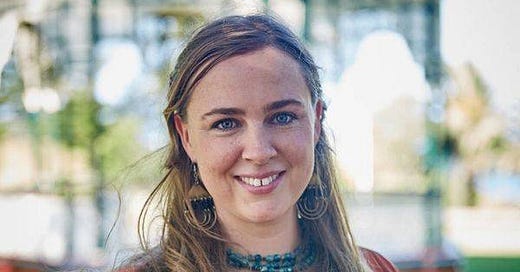







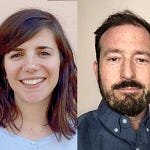

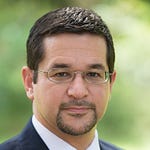

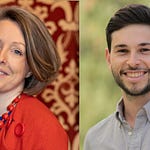

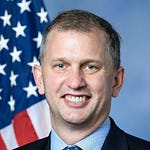
Share this post